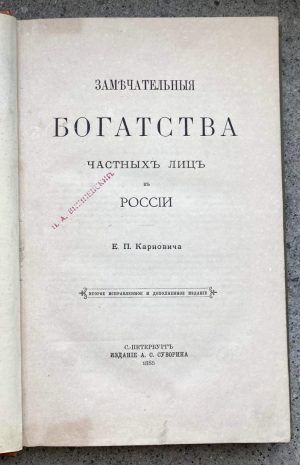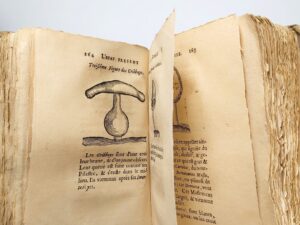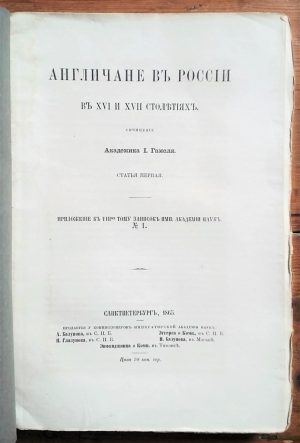Our Notes & References
A very unusual and surprisingly relevant study of the economic life of pre-revolutionary Russia, focusing on the history of the wealth of the Russian leaders and what we would call today Very-High-Net-Worth individuals.
The Russian writer, historian and journalist Evgenii Petrovich Karnovich (1823-85) analyses here the political and economic conditions for the elites’ enrichment from the time of Ivan the Terrible to the reign of Alexander I.
Even though Karnovich reveals in his book multiple glaring cases of corruption by the Russian elites, sometimes supported by the tsars and the government, the work still saw two publications: first in 1874 and then in this second, corrected and augmented edition. Discussing such problematic subjects, Karnovich does not seem to take a political side – which is perhaps why the book reached its readers without significant difficulties.
According to the author, the ways of acquiring wealth – trade or industry, diluted by official and public misuse or by blind chance – can help us understand administrative, financial and economic underpinnings of the Russian way of life. “To see how much we got used to living off public money is visible in the example of such a blameless man as Count Mikhail Andreevich Miloradovich who also was not averse to abuse his high official position. Thus, as St. Petersburg military governor-general, he embezzled more than 1 000 000 rubles and built a summer house in Ekateringof where he […] would give lavish parties for pretty actresses” (our translation).
Remarkable for its wide range and comprehensiveness, this study uses a large variety of official and unofficial materials, such as legal acts, historical documents and memoirs. In each chapter, he discusses the role of the tsars or tsarinas in the elite’s wealth accumulation, the major contemporary families and the economic and social phenomena, peculiar to the epoch, such as the growth of wealth in the so-called Malorossia (modern-day Ukraine), recently acquired by Catherine the Great, and the extent of property confiscations under the reign of her son Paul I. Besides, Karnovich delves into more specific topics including bankers, counterfeit banknotes, card debtors, the habits of the rich, the payoffs and the foundation of charities.
Particularly fascinating are also the observations of the rise of the wealthiest Russian families, such as the Stroganov, the princes Yusupov, the Counts Razumovsky and even the ancestors of Alexander Pushkin and Count Leo Tolstoy among many others.
A fresh example, in a sturdy binding. Uncommon: we couldn’t trace any example at auction outside Russia.
Provenance
V. Khimikus (gilt lettering to spine foot); N. A. Vishnevskii (stamp to title page; possibly an amateur artist recorded in Kharbin in the 1930s); Avenir Nizoff (émigré, pianist, who lived in Edmonton, Canada, in the second half of the 20th century, and gathered a large, wide-ranging library of Russian works, especially covering art, history and literature).
Physical Description
Large 8vo (24.3 x 15.5 cm). Title, VI and 330 pp.
Binding
Contemporary dark green sheep spine over green cloth, spine with raised bands, lettered in gilt, marbled edges.
Condition
Spine uniformly discoloured to light brown, minor staining to boards; minor soiling to title, otherwise fresh.










